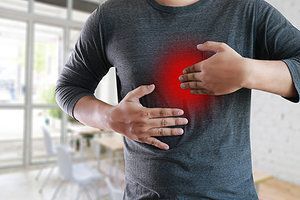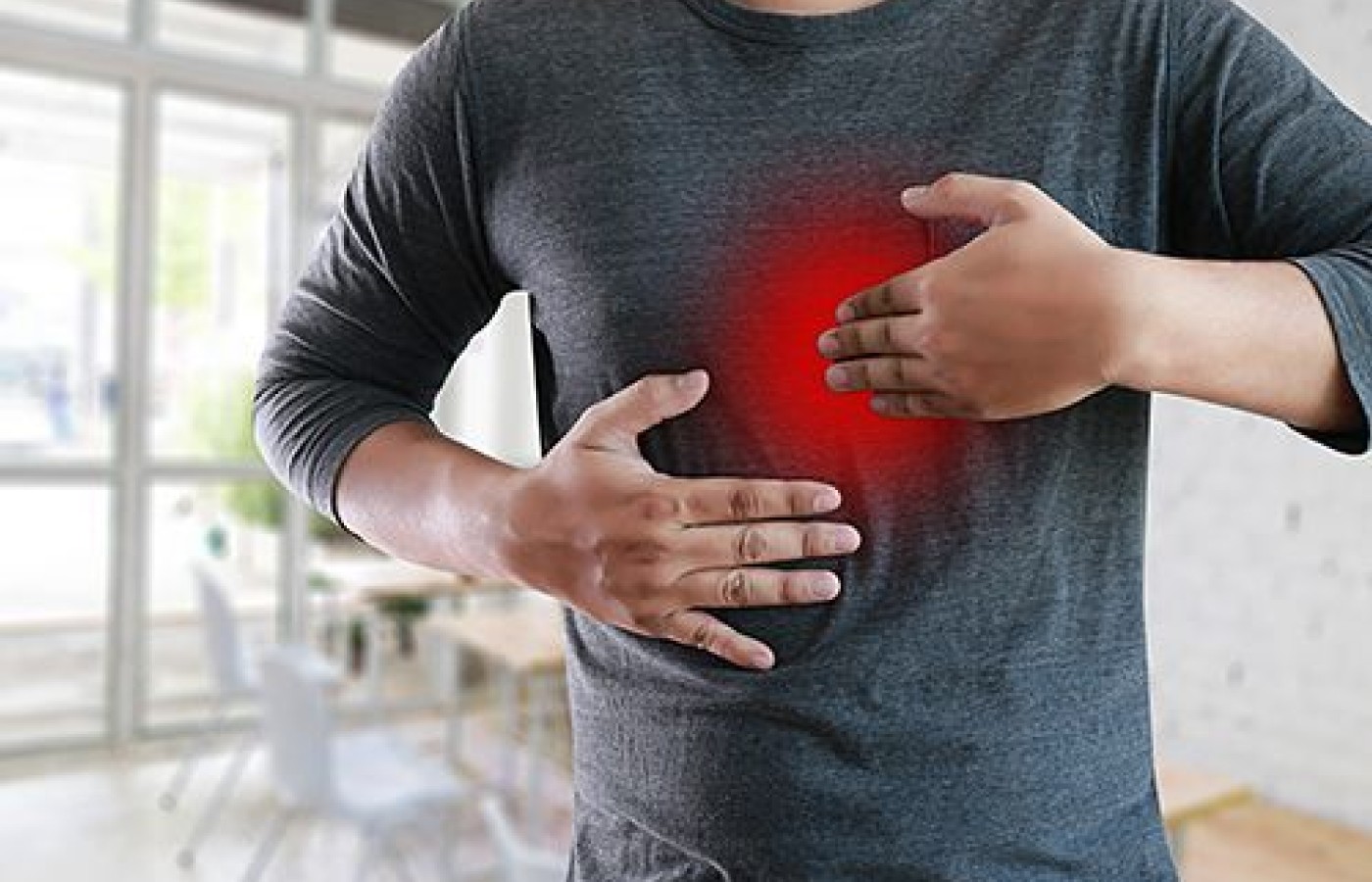One of the longest nerves in the body is known as the vagus nerve (VN). The VN is the 10th pair of cranial nerves that originates at the brain stem in the medulla oblongata. This nerve is part of the parasympathetic nervous system, which is a part of the ANS. Research suggests ear acupuncture can activate the VN.
Returning to Balance: Treating Gastric Reflux With TCM
Gastric reflux is one of the most common clinical presentations in the modern TCM clinic. Practitioners of Chinese medicine have much to offer patients suffering from this challenging health issue and should be aware of the potential long-term side-effects of over-the-counter and prescription medications, which are commonly used for chronic and acute gastric reflux disease.
Three Formulas for Gastric Reflux
The most common clinical scenario I encounter in my practice are patients suffering from chronic gastric reflux who have been taking prescription or over-the-counter medications for a year or more.
I rarely encounter patients who suffer from gastric reflux and seek acute help. Most patients have been taking allopathic medication for a year or more and in many cases, assume this is "normal."
It is very important for the TCM clin-ician to not only relieve the symptoms but also to discover and understand the basic mechanisms behind, not only the functional gastric disturbance, but also the mechanisms by which over-the-counter / prescription allopathic medications target gastric reflux.
Proton Pump Inhibitors
While I do have occasional patients manage their gastric reflux with chewable calcium such as "TUMS" or "Rolaids," by far the majority are using Proton Pump Inhibitors or "PPIs" to manage their digestive issues. These medications, depending upon the strength, can work for 12 hours or up to 24 hours. Proton pump inhibitors work by gastric proton pump of the parietal cells within the stomach. The parietal cells secrete hydrochloric acid, therefore these medications target the terminal step in gastric acid sto-mach production.

While suppressing stomach acid can be helpful in the short term, long-term suppression can cause significant health issues as gastric stomach acid is responsible for not only the digestion proteins but also B12, calcium, other minerals as well as function as an initial barrier for the immune response.
It's very important for TCM clinicians to seek to find out if patients have taken these types of medications for more than six months. If so, the patient may be suffering from hypochlorhydria (too little stomach acid). Using allopathic medications such as PPIs to manage gastric reflux is not the ideal protocol from the perspective of TCM as such medications do nothing to balance the underlying functional imbalance rather they literally turn off the stomach so to speak.
This is not a sustainable option for long-term health maintenance. The presentation of gastric reflux can present with a diverse array of TCM patterns of disharmony however the most common ones I see are: Food Stagnation and Liver Depression Qi Stagnation.
Food Stagnation
This is an extremely common pattern in contemporary clinical practice due to many factors: high protein diets, poor food combining, hypochlorhydria, food allergies / sensitivities, overeating, etc. If patients have any one or a combination of these issues and take PPIs, then the issue of "food stagnation" becomes of utmost importance as the stomach is literally not producing the basic components necessary for basic digestion.
The TCM patent medicine or herbal formula Bao He Wan resolves food stasis, harmonizes the stomach, descends the stomach qi, clears heat, dispels damp and promotes digestion. This rather simple TCM formula targets almost all basic issues involved in common cases of gastric reflux.
I frequently use this patent medicine and formula with patients who are using standard digestive enzymes or probiotics with little to no results or improvements. The ingredients in this formula work on a deeper functional level than basic digestive supplements and works to improve the qi mechanisms behind basic digestive function. Clinicians should be aware of the diverse clinical benefits of this so called "basic" TCM patent medicine / formula.
Liver Depression Qi Stagnation
This TCM pattern presentation of Liver Depression Qi Stagnation is perhaps the most common discussed patterns of disharmony. This pattern is almost always involved in cases of Gastric Reflux especially cases in which the patient has taken PPIs for long-term. The formula / patent medicine Chai Hu Shu Gan San soothes the Liver, activates the stomach qi, invigorates the blood, harmonizes the Spleen and Liver, and stops pain.
Although originally created to address hypochondriac pain and costal distention, in the contemporary clinic it can be used for a wide range of issues which are related to Liver Depression and the concomitant Blood Stasis which can eventually accompany Qi stagnation.
I commonly use this formula in combination with the aforementioned Bao He Wan in cases of chronic gastric reflux and especially with patients who have used PPIs for an extended period of time. I personally use this combination of patent medicines / formulas for many complex cases of digestive discomfort and gastric reflux over the more popular TCM patent medicine / formula Xiao Yao Wan.
Spleen Qi Vacuity
In cases of gastric reflux in which Spleen Qi Vacuity plays a substantial role over Liver Depression and or Food Stagnation, the clinician can use the combination of Bao He Wan / Xiao Yao Wan or Chai Hu Shu Gan Wan / Xiao Yao Wan to more effectively resolve gastric challenges.
This complication of Spleen Qi Vacuity can be a very important underlying complication in patients who have taken PPIs for extended periods of time essentially putting their digestive system in hibernation. If the patient or clinician seeks to restore or "reawaken" a hypo-functioning digestive system, addressing the mechanism of the Spleen Qi is essential.
Over time Liver Depression Qi Stagnation can result in Food Stagnation, Spleen Qi Vacuity and Blood Stasis. Therefore, the judicial use of the synergistic activity of Bao He Wan, Chai Hu Shu Gan San, and Xiao Yan Wan is very important when addressing cases of Gastric Reflux. Chai Hu Shu Gan San is also a very important patent medicine / formula to have in the clinical repertoire in the all too common situation of patients taking PPI medication for a year or longer. It is not uncommon for me to encounter patients who have been taking PPIs daily for 2-3 years! In these unfortunately typical cases, the TCM pattern of Blood Stasis almost always appears.
Chronic Use of the PPI
In these cases of chronic use of PPIs, patients are often interested in stopping the medications however due to the long-term effects of stalling the qi mechanisms of the gastric system, there are several layers of underlying stasis with complications usually manifested due to Liver Depression Qi Stagnation / Blood Stasis / Food Stagnation.
In such complicated cases, one simple patent medicine or formula will not effectively resolve the patient's issues. The combination of Chai Hu Shu Gan San / Bao He Wan is very important in such situations. This pairing of formulas can assist patients in slowly phasing off PPI medications slowly over time while slowly and efficiently targeting the root of the pattern of disharmony.
Once again, this approach goes much deeper than just offering the patient digestive enzymes or probiotics which although helpful, do not correct underlying pattern disharmonies. This is the true strength of the TCM practitioner: using pattern discrimination to help correct underlying functional disharmony in the patient.
When this is the target, the "band-aid" or symptomatic approach of what I call "allopathic herbalism" can be avoided. Instead the practitioner of TCM can offer a deep nuanced and professionally systematic patient-centered approach to integrative healing.



